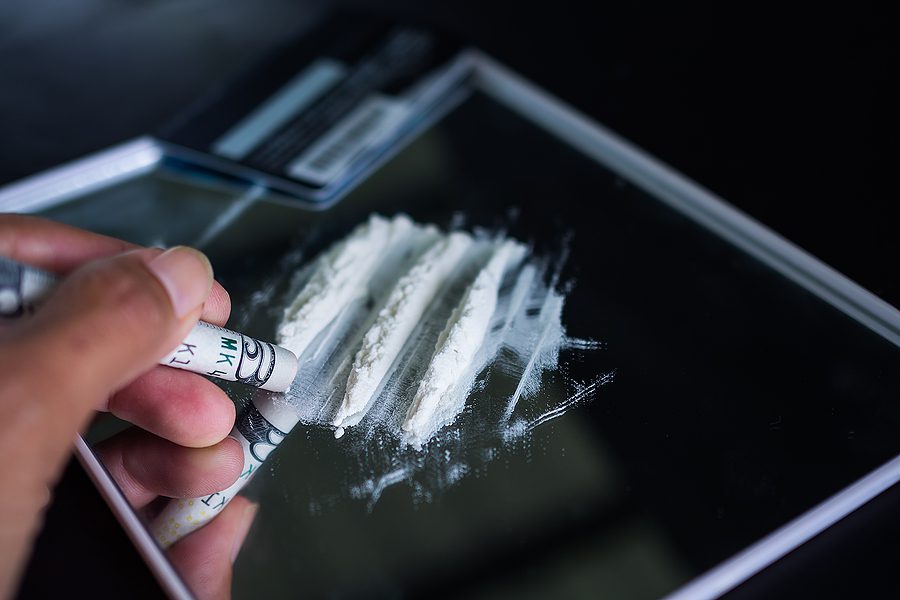BOSTON – A member of the Tiny Rascals Gang (TRG) pleaded guilty yesterday to his role in a drug trafficking conspiracy operating in Massachusetts and Maine and to his involvement in six shootings in furtherance of the conspiracy.
Jaiir Coleman, a/k/a “JC”, a/k/a “Chino,” 22, of Malden, pleaded guilty to one count of conspiracy to manufacture, distribute and possess with intent to distribute 400 grams or more of fentanyl, 50 grams or more of methamphetamine, and 280 grams or more of cocaine base, and other controlled substances; one count of conspiring to possess, use and carry firearms in furtherance of a drug trafficking conspiracy; one count of possessing a machine gun; and one count of possessing a machine gun in furtherance of a drug trafficking conspiracy. U.S. District Court Judge Nathaniel M. Gorton scheduled sentencing for June 8, 2022. Under the terms of the plea agreement, Coleman faces a mandatory term of 40 years in prison for these drug and gun crimes.
Coleman was arrested in January 2021 on state offenses and charged in April 2021 as part of Operation Street Sweepah: Kings of Belaire, an investigation that began in 2020 in direct response to increased violence in communities north of Boston where a significant spike in shootings is believed to be the result of gang-related rivalries.
Coleman is a self-identified member of TRG, one of the largest and most violent criminal street gangs in the country that operates on a decentralized structure via local groups or “sets.” TRG is involved in street-level distribution of powdered cocaine, marijuana, ecstasy and methamphetamine and members are known for their involvement in gun violence on the street, including drive-by shootings of residences of rival gang members.
Coleman participated in a long-running conspiracy to distribute large quantities of fentanyl, methamphetamine and cocaine base (crack cocaine) locally and in the Bangor, Maine, area. The charging documents describe numerous recorded conversations between Coleman and a co-conspirator in which the sale and distribution of controlled substances is discussed, including explicit instructions by Coleman about the manner in which to adulterate fentanyl and the proper prices to charge.
Coleman admitted to committing six shootings in furtherance of this drug conspiracy. Four shootings took place on Nov. 11, 2019, in Chelsea and Somerville, during which homes and vehicles were struck with gunfire. A fifth shooting took place in May 2020 in Somerville targeting individuals who were believed to be rival gang members. A sixth shooting took place in Cambridge in July 2020, during which Coleman used a machine gun to shoot at a group of individuals in response to a video posting made on social media.
On Jan. 6, 2021, Coleman was arrested for operating with a suspended license. A subsequent search of Coleman’s vehicle resulted in the recovery of a machine gun. According to the charging documents, a music video posted online earlier that week depicts Coleman holding and brandishing the same machine gun recovered from the vehicle on Jan. 6, 2021.
The charge of conspiring to distribute and possess with intent to distribute 400 grams or more of fentanyl, 50 grams or more of methamphetamine, and 280 grams or more of cocaine base, provides for a mandatory minimum sentence of at least 10 years and up to life in prison, at least five years and up to a lifetime of supervised release and a fine of up to $10 million. The charge of conspiring to possess, use and carry firearms in furtherance of a drug trafficking conspiracy provides for a sentence of up to life in prison because a machine gun was involved in the offense, five years of supervised release and a fine of $250,000. The charge of possessing a machine gun provides for a sentence of up to 10 years in prison, three years of supervised release and a fine of $250,000. The charge of possessing a machine gun during and in relation to a drug trafficking crime provides for a mandatory minimum sentence of 30 years and up to life in prison to be served consecutively to the penalty for the underlying drug trafficking crime, five years of supervised release and a fine of $250,000. Sentences are imposed by a federal district judge based on the U.S. Sentencing Guidelines and other statutory factors.
First Assistant United States Attorney Joshua S. Levy; Joseph R. Bonavolonta, Special Agent in Charge of the Federal Bureau of Investigation, Boston Field Division; James Ferguson, Special Agent in Charge of the Bureau of Alcohol, Tobacco, Firearms and Explosives, Boston Field Division; Colonel Christopher Mason, Superintendent of the Massachusetts State Police; Roy E. McKinney, Director of the Maine Drug Enforcement Agency; Somerville Acting Police Chief Charles Femino; Chelsea Police Chief Brian Kyes; Lynn Police Chief Christopher P. Reddy; Cambridge Police Commissioner Christine Elow; Salem Police Chief Lucas Miller; Everett Police Chief Steven A. Mazzie; Malden Police Chief Kevin Molis; and Revere Police Chief James Guido made the announcement. Assistance was provided by the U.S. Attorney’s Office for the District of Maine; Middlesex County and Suffolk County District Attorney’s Offices; Suffolk County and Essex County Sheriff’s Departments; and the Boston Police Department. Assistant U.S. Attorney Philip A. Mallard of the Organized Crime & Gang Unit is prosecuting the case.
This effort is part of an Organized Crime Drug Enforcement Task Forces (OCDETF) operation. OCDETF identifies, disrupts, and dismantles the highest-level criminal organizations that threaten the United States using a prosecutor-led, intelligence-driven, multi-agency approach. Additional information about the OCDETF Program can be found at https://www.justice.gov/OCDETF.
